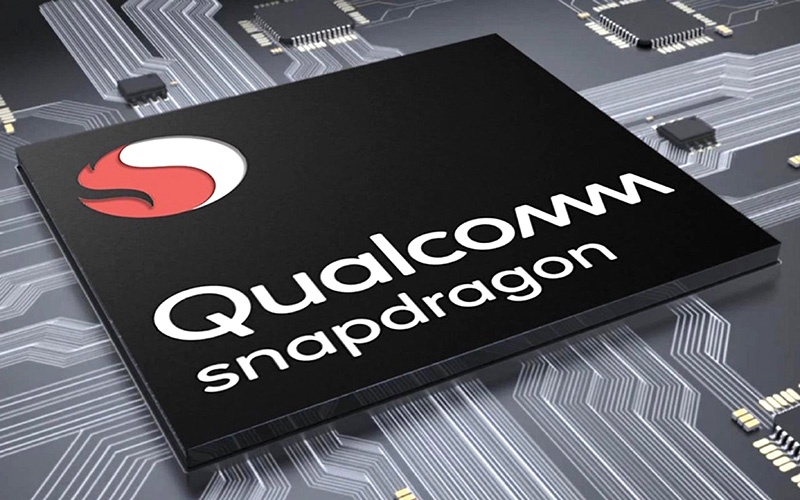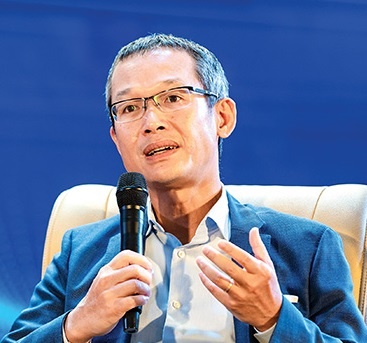Tech titans advance business growth
 |
| Qualcomm is supporting the deployment of 5G in this country, Photo: Le Toan |
At present, Denis Brunetti, president of Ericsson for Vietnam, Myanmar, Cambodia, and Laos, and his staff are proceeding with plans for 2022 and beyond, with one of the focuses being a partnership with RMIT University to establish a pipeline of 5G-capable students in Vietnam who can contribute to the country’s digital economy and strategic digital transformation advancement.
Besides the partnership with RMIT, the company will help its customers and service providers seamlessly deploy 5G in the country even as it continues to strengthen its 4G footprint and capabilities.
Brunetti told VIR, “We will partner with local ecosystem players including app developers to collaborate, innovate, and develop solutions to meet the needs of customers as well as enterprises in Vietnam so that the full potential of 5G can be harnessed and realised to fuel the country’s continued growth.”
The announcement of the collaboration with RMIT University was one of the highlights of Ericsson’s performance in Vietnam in 2021. As part of this initiative, the tech giant has opened up the Ericsson Educate platform to RMIT students across the country. In September, Qualcomm, Viettel, and Ericsson successfully tested and established 5G data transmission speed of more than 4.7Gb per second.
Ericsson is currently running over 100 live 5G networks in 46 countries across the globe. Like Ericsson, other tech titans like Qualcomm, Lenovo, Keysight Technologies, and Renova Cloud have been making bold moves to increase their footprint in the lucrative market globally.
In Vietnam, the government is taking a number of actions to accelerate national digital transformation to reach its ambition of becoming a technology hub in the region, pinning high hopes on huge growth opportunities. For instance, at the end of 2021, it announced its target to officially commercialise 5G by the end of 2022, and for 5G mobile coverage to reach up to 8 per cent of the population.
Specifically, the government’s focus on making 5G commercially available in Vietnam ties in with Qualcomm’s priority areas in Vietnam. For Lenovo, Vietnam continues to be a key market in Asia-Pacific, where small- and medium-sized enterprises make up over 90 per cent and where IT becomes ever-more important in all businesses.
In 2021, Lenovo’s products and services continued to be among the best sellers in Vietnam, especially when demand for laptops soared as pupils and students across the country studied online.
In February, Lenovo announced record Q3 results for last year, with historic highs for both profit and revenue and the group’s first $20 billion quarter.
This year, Lenovo announced that it is advancing its service-led transformation in Asia-Pacific with Lenovo TruScale to support future business growth. The group will focus on vertical growth and an extensive customer base in PCs and new environmental, social, and governance opportunities.
According to experts, the next wave of socioeconomic development in Vietnam will come from innovation, science, and technology, driven by the digital economy – and 5G has the potential to accelerate the digital transformation of virtually any sector of industry or society.
5G will serve as the critical national infrastructure that will enable the digitalisation of services and financial inclusion, and enable Vietnam to unlock the potential of the Fourth Industrial Revolution, as well as be the foundation on which Vietnam can further build on its digital transformation journey and realise the government’s vision of a digital society, digital economy, and digital government.
| Sang-Ho Oh - General director, South Asia-Pacific Keysight Technologies
We have seen Vietnamese businesses of all sizes, from startups and e-commerce to manufacturing and banking, overcome difficulties over the past couple of years and grow. We are happy to have been supporting our customers and partners in helping them to solve difficulties, and ensure production and business continuity by deploying Keysight’s solutions for their operations. In particular, we saw gains in our cybersecurity business in Vietnam in 2021, as it addresses the increasing needs of the local market, aligned with the country’s digital transformation initiative across all industries. The cybersecurity business continues to be our key growth engine in Vietnam for the coming years. This year promises a lot of potential for breakthrough development for Vietnamese businesses through a series of practical policies from the government. In addition, the high rate of vaccination to speed up the recovery of the economy, political stability, the high confidence of foreign investors on the back of investment incentives, improved infrastructure, and a positive economic environment with the 5G network to be commercialised soon, will open up many growth opportunities for businesses. Keysight will continue to support our partners and customers in Vietnam and work with organisations, universities, and business associations to help them achieve the most efficient digital transformation journey. In the telecommunications industry, we have been working with leading Vietnamese mobile operators to help them deploy their 5G infrastructure smoothly. In the manufacturing sector, we partner with many international and local manufacturers in Vietnam to help them deploy vertical use cases in the automobile, the Internet of Things, and electronics industries. Thieu Phuong Nam - CEO for Vietnam, Cambodia and Laos, Qualcomm
Last year was a notable one for Qualcomm in Vietnam as we continued to contribute to strengthening the Vietnamese 5G ecosystem. We collaborated with numerous stakeholders to support the deployment of 5G, ensure that Vietnam is well-positioned to benefit from it and contribute to the government’s digitalisation goals. We made strides in introducing smart solutions in Vietnam that will help ensure that 5G’s benefits will have a real and visible impact on the everyday lives of the Vietnamese. These include our partnership with SonKim Land to bring comprehensive solutions to The 9 Stellars, which is located in Thu Duc city. Moreover, we signed an MoU with Phenikaa University, a member unit of Phenikaa-X JSC, and Viettel Networks to build the first smart university campus in Vietnam at Phenikaa University. And we continued to support Vietnam’s emerging technology ecosystem by nurturing nine up-and-coming Vietnamese technology startups through the Qualcomm Vietnam Innovation Challenge. We want to contribute to helping Vietnam further strengthen its 5G ecosystem even more, from networks to applications such as smart verticals and smart devices, while collaborating with more Vietnamese companies to further develop smart cities and smart home solutions. Doron Shachar - CEO, Renova Cloud
Renova Cloud’s main progress during 2021 was in building the capabilities for cloud migration as well as DevOps and automation. For that, we have invested in different levels of projects and enhanced our tech team experience. In 2022, companies will go further with automation and advanced projects related to AI, analytics, and database migration. The Vietnamese government fully understands that services should be digital. It is clear that Vietnam must get into digitalisation and progress is happening. As a local company, we should be clear of our core competencies and abilities to deliver large-scale government projects that fall under clear policies and restrictions. We need to build an expert local team that fully understands each vertical and its specificities. There is also a large gap between the private and public sectors. |
What the stars mean:
★ Poor ★ ★ Promising ★★★ Good ★★★★ Very good ★★★★★ Exceptional
Themes: Digital Transformation
- PM sets five key tasks to accelerate sci-tech development
- Ho Chi Minh City launches plan for innovation and digital transformation
- Dassault Systèmes and Nvidia to build platform powering virtual twins
- Sci-tech sector sees January revenue growth of 23 per cent
- Advanced semiconductor testing and packaging plant to become operational in 2027
Related Contents
Latest News
More News
- Ho Chi Minh City launches plan for innovation and digital transformation (February 25, 2026 | 09:00)
- Myriad risks ahead, but ones Vietnam can confront (February 20, 2026 | 15:02)
- Vietnam making the leap into AI and semiconductors (February 20, 2026 | 09:37)
- Funding must be activated for semiconductor success (February 20, 2026 | 09:20)
- Resilience as new benchmark for smarter infrastructure (February 19, 2026 | 20:35)
- A golden time to shine within ASEAN (February 19, 2026 | 20:22)
- Vietnam’s pivotal year for advancing sustainability (February 19, 2026 | 08:44)
- Strengthening the core role of industry and trade (February 19, 2026 | 08:35)
- Future orientations for healthcare improvements (February 19, 2026 | 08:29)
- Infrastructure orientations suitable for a new chapter (February 19, 2026 | 08:15)




 Tag:
Tag:



















 Mobile Version
Mobile Version